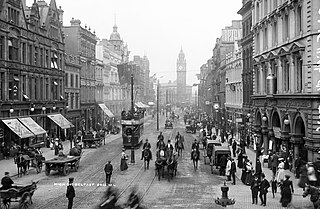A tort is a civil wrong that causes a claimant to suffer loss or harm, resulting in legal liability for the person who commits the tortious act. Tort law can be contrasted with criminal law, which deals with criminal wrongs that are punishable by the state. While criminal law aims to punish individuals who commit crimes, tort law aims to compensate individuals who suffer harm as a result of the actions of others. Some wrongful acts, such as assault and battery, can result in both a civil lawsuit and a criminal prosecution in countries where the civil and criminal legal systems are separate. Tort law may also be contrasted with contract law, which provides civil remedies after breach of a duty that arises from a contract. Obligations in both tort and criminal law are more fundamental and are imposed regardless of whether the parties have a contract.
False imprisonment or unlawful imprisonment occurs when a person intentionally restricts another person’s movement within any area without legal authority, justification, or the restrained person's permission. Actual physical restraint is not necessary for false imprisonment to occur. A false imprisonment claim may be made based upon private acts, or upon wrongful governmental detention. For detention by the police, proof of false imprisonment provides a basis to obtain a writ of habeas corpus.

English tort law concerns the compensation for harm to people's rights to health and safety, a clean environment, property, their economic interests, or their reputations. A "tort" is a wrong in civil, rather than criminal law, that usually requires a payment of money to make up for damage that is caused. Alongside contracts and unjust enrichment, tort law is usually seen as forming one of the three main pillars of the law of obligations.

In common law jurisdictions, a misrepresentation is a false or misleading statement of fact made during negotiations by one party to another, the statement then inducing that other party to enter into a contract. The misled party may normally rescind the contract, and sometimes may be awarded damages as well.
Economic torts, which are also called business torts, are torts that provide the common law rules on liability which arise out of business transactions such as interference with economic or business relationships and are likely to involve pure economic loss.
Tortious interference, also known as intentional interference with contractual relations, in the common law of torts, occurs when one person intentionally damages someone else's contractual or business relationships with a third party, causing economic harm. As an example, someone could use blackmail to induce a contractor into breaking a contract; they could threaten a supplier to prevent them from supplying goods or services to another party; or they could obstruct someone's ability to honor a contract with a client by deliberately refusing to deliver necessary goods.

The Trade Disputes Act 1906 was an Act of the Parliament of the United Kingdom passed under the Liberal government of Sir Henry Campbell-Bannerman. The Act declared that unions could not be sued for damages incurred during a strike.

English contract law is the body of law that regulates legally binding agreements in England and Wales. With its roots in the lex mercatoria and the activism of the judiciary during the industrial revolution, it shares a heritage with countries across the Commonwealth, from membership in the European Union, continuing membership in Unidroit, and to a lesser extent the United States. Any agreement that is enforceable in court is a contract. A contract is a voluntary obligation, contrasting to the duty to not violate others rights in tort or unjust enrichment. English law places a high value on ensuring people have truly consented to the deals that bind them in court, so long as they comply with statutory and human rights.

Rookes v Barnard [1964] AC 1129 is a UK labour law and English tort law case and the leading case in English law on punitive damages and was a turning point in judicial activism against trade unions.

Lumley v. Gye [1853] EWHC QB J73 is a foundational English tort law case, heard in 1853, in the field of economic tort. It held that one may claim damages from a third person who interferes in the performance of a contract by another.

Quinn v Leathem [1901] UKHL 2, is a case on economic tort and is an important case historically for British labour law. It concerns the tort of "conspiracy to injure". The case was a significant departure from previous practices, and was reversed by the Trade Disputes Act 1906. However, the issue of secondary action was later restricted from the Employment Act 1980, and now the Trade Union and Labour Relations (Consolidation) Act 1992. The case was heavily controversial at the time, and generated a large amount of academic discussion, notably by Wesley Newcomb Hohfeld, which continued long after it was overturned.
The following outline is provided as an overview of and introduction to tort law in common law jurisdictions:
Economic torts in English law refer to a species of civil wrong which protects the economic wealth that a person will gain in the ordinary course of business. Proving compensation for pure economic loss, examples of an economic tort include interference with economic or business relationships.
Vicarious liability in English law is a doctrine of English tort law that imposes strict liability on employers for the wrongdoings of their employees. Generally, an employer will be held liable for any tort committed while an employee is conducting their duties. This liability has expanded in recent years following the decision in Lister v Hesley Hall Ltd to better cover intentional torts, such as sexual assault and deceit. Historically, it was held that most intentional wrongdoings were not in the course of ordinary employment, but recent case law suggests that where an action is closely connected with an employee's duties, an employer can be found vicariously liable. The leading case is now the Supreme Court decision in Catholic Child Welfare Society v Institute of the Brothers of the Christian Schools, which emphasised the concept of "enterprise risk".
Trespass in English law is an area of tort law broadly divided into three groups: trespass to the person, trespass to goods, and trespass to land.

Mogul Steamship Co Ltd v McGregor, Gow & Co [1892] AC 25 is an English tort law case concerning the economic tort of conspiracy to injure. A product of its time, the courts adhered to a laissez faire doctrine allowing firms to form a cartel, which would now be seen as contrary to the Competition Act 1998.
Illegality in English law is a potential ground in English contract law, tort, trusts or UK company law for a court to refuse to enforce an obligation. The illegality of a transaction, either because of public policy under the common law, or because of legislation, potentially means no action directly concerning the deal will be heard by the courts. The doctrine is reminiscent of the Latin phrase "Ex turpi causa non oritur actio", meaning "no cause of action arises from a wrong". The primary problem arising when courts refuse to enforce an agreement is the extent to which an innocent party may recover any property already conveyed through the transaction. Hence, illegality raises important questions for English unjust enrichment law.
Collective action in the United Kingdom including the right to strike in UK labour law is the main support for collective bargaining. Although the right to strike has attained the status, since 1906, of a fundamental human right, protected in domestic case law, statute, the European Convention on Human Rights and international law, the rules in statute have generated significant litigation. The "right of workers to engage in a strike or other industrial action" is expressly recognised in the Trade Union and Labour Relations (Consolidation) Act 1992 section 180, and has been recognised repeatedly by the Court of Appeal as "a fundamental human right"., and the House of Lords.
Morgan v Fry [1968] 2 QB 710 is a UK labour law case, concerning the right to strike at common law.

Watkins v Home Office and others[2006] UKHL 17, was a United Kingdom legal case heard by the House of Lords where the Home Office made an appeal as to whether the tort of misfeasance in public office was actionable in the absence of proof of pecuniary losses or injury of a mental or physical nature. The appeal was upheld, ruling that the tort of misfeasance in public office is never actionable without proof of material damage as defined by Lord Bingham of Cornhill.








